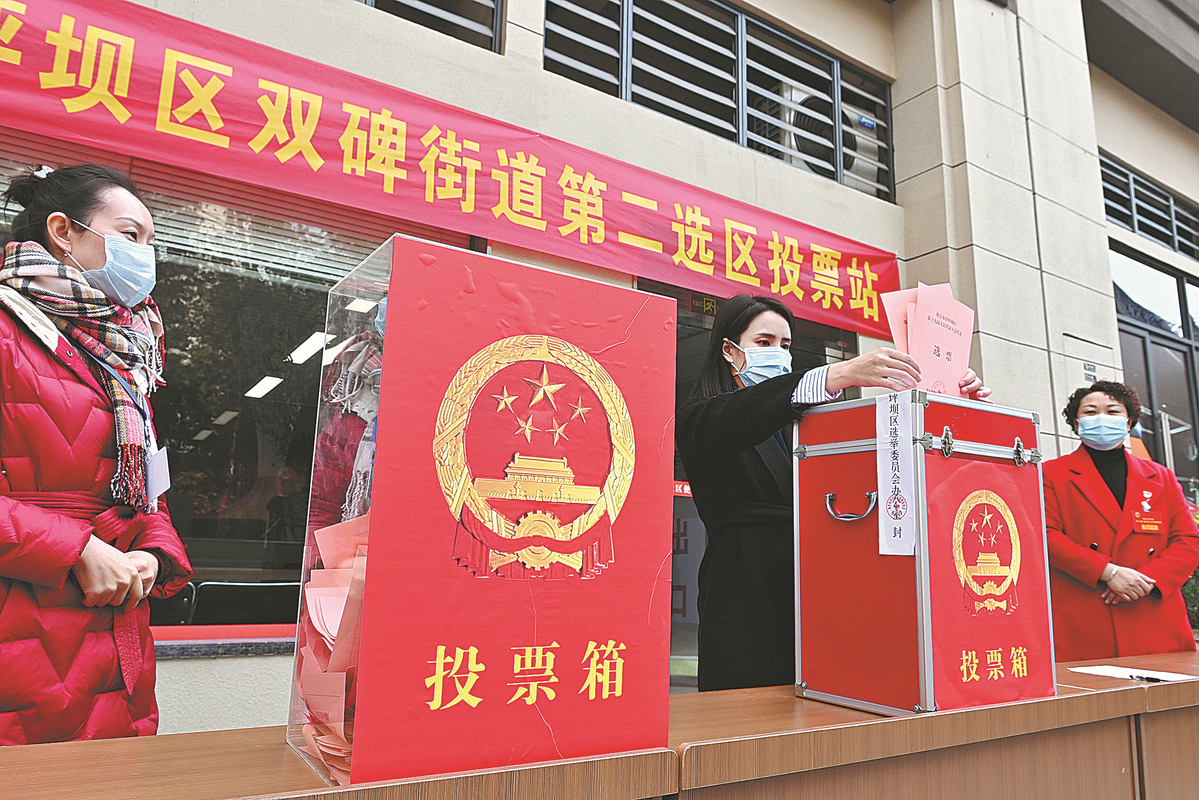US-style democracy 'only awakened during voting'


With wide participation and strong oversight, China's democracy is more extensive, more genuine and more effective than the United States' version, senior Chinese officials said while introducing a white paper over the weekend.
The State Council Information Office issued the white paper "China: Democracy That Works" on Saturday, noting that there is more than one path to democracy and there are many ways to achieve it.
When asked which style of democracy is better, Chinese or US, Tian Peiyan, deputy head of Policy Research Office with the Communist Party of China Central Committee, answered that its "practice is the most convincing" argument.
He said under the US democratic system, politicians are agents of interest groups, rather than representing the interests of the majority of voters and the country.
"Those politicians can randomly make promises for the sake of elections, but they seldom fulfill the promises after being elected," Tian said. "Superficially, they accept voters' supervision, but when they're elected, the voters have no option but to wait for the next election.
"It's a democracy that is only awakened during voting but becomes dormant after voting, and it's also a democracy where voters listen to dazzling slogans only during the election but have no say after the election," he said, adding that such democracy is not a real democracy.
China's democracy, however, is a whole-process people's democracy under the CPC's leadership, he said.
Party members and officials at all levels must accept the process and supervision by the CPC and the people while performing their duties to ensure the power granted by the people is always used for serving the people's interest.
"Any violation of Party disciplines and laws must be punished, no matter how senior the violator is or how high his or her social status is. No one is an exception," Tian said.
Tian emphasized that deputies to people's congresses, China's legislative bodies, are from the people and elected by the people. Therefore, they represent the people, serve the people and should be responsible for the people, he said.
"The deputies have always kept close contact with the public, listening to people's requests, striving to solve their problems and receiving their supervision in all areas," he added. "Deputies who don't perform their duties or violate disciplines or laws can be disqualified or removed from office."
Guo Zhenhua, deputy secretary-general of the National People's Congress Standing Committee, the country's top legislature, pointed out the behavior of US politicians before and after elections changed due to the lack of a supervisory mechanism after they take office.
"But in China, both the Constitution and the Electoral Law stipulate that deputies to the NPC and local people's congresses must be supervised by voters and the original electoral units," he said. "Voters or original electoral units have the right to recall elected representatives."
Since the 13th NPC was established in 2018, a total of 10 NPC deputies have been dismissed, he said.
Xu Lin, director of the State Council Information Office, said the US' so-called "Summit for Democracy", due to be held Thursday and Friday, is actually intended to contain and suppress countries that have social systems and development models different to the US'.
He said in a widely diverse world, democracy comes in many forms, adding that China has always been receptive to any type of democracy and given respect to efforts to explore and pursue different models.
According to the white paper, China did not duplicate Western models of democracy, but created its own, and its original aspiration was to ensure the people's status as masters of the country.
It says China built and developed whole-process people's democracy in line with its national conditions, noting it involves complete institutional procedures and covers various fields.
Whole-process people's democracy is a combination of electoral democracy and consultative democracy, and is applied through a combination of elections, consultations, decision-making, management and oversight, it says, adding it has been fully tested through wide participation.
- Man sentenced to death for killing ex-girlfriend in Anhui
- A US youth reflects on the 'cave-dwelling conversation'
- China unveils first AI model to gauge weather's impact on stock market
- Tianjin launches youth program to cultivate university talent for tech market
- Local farmers combat desertification in Moyu county of Xinjiang
- N China's Hohhot launches winter amusement programs to boost local economy





































